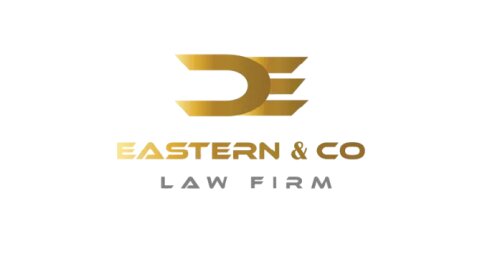Best Technology Transactions Lawyers in Dokki
Share your needs with us, get contacted by law firms.
Free. Takes 2 min.
List of the best lawyers in Dokki, Egypt
1. About Technology Transactions Law in Dokki, Egypt
Technology transactions in Dokki, Egypt, are governed by a framework of Egyptian laws that regulate software licensing, data handling, digital signatures, and cyber activities. This includes contracts for software as a service, cloud services, outsourcing, and cross border data transfers. Local practice often combines contract law with data protection, IP, and cyber security considerations. For residents of Dokki, understanding both national rules and how they apply to local businesses is essential for minimizing risk.
2. Why You May Need a Lawyer
Engaging in a technology transaction in Dokki without legal counsel can expose you to hidden obligations or penalties. Here are concrete scenarios where you should consult a technology transactions lawyer in Dokki, Cairo or Giza governorate.
- A manufacturing firm in Dokki signs a cloud hosting agreement that includes data processing obligations and cross border data transfers. A lawyer can review data processing terms, data security measures, and transfer safeguards to comply with local PDPL requirements.
- A startup licenses proprietary software for a new app and needs a bespoke licensing agreement. An attorney can tailor usage rights, restrictions, open source compliance, and liability limitations to protect both parties.
- A Dokki-based service provider negotiates an outsourcing contract for software development. A solicitor should harmonize project milestones, IP assignment rights, and warranty provisions to prevent future disputes.
- Your company processes personal data of Egyptian customers and must implement data protection obligations. A legal counsel can draft data processing agreements, data breach procedures, and subject access rights compliance.
- You plan to implement a digital signature workflow. An attorney can advise on the enforceability of electronic signatures under Egyptian law and ensure the correct sequence of approvals and attestations.
- You suspect a contract with a supplier may violate local cyber crime or information technology laws. A lawyer can assess risk under relevant statutes and propose corrective measures.
3. Local Laws Overview
The Egyptian legal framework for technology transactions includes several key statutes and regulations that govern data handling, electronic transactions, and cyber activities. The following laws are central to most Dokki technology deals.
- Personal Data Protection Law No. 151 of 2020 governing the processing of personal data, data subject rights, cross border transfers, and the duties of data controllers and processors. Executive regulations and guidance from the National Authority for Personal Data Protection (NAPDP) shape practical compliance.
- Law No. 175 of 2018 on Combating Information Technology Crimes addressing cyber crime, illicit access, and other information technology related offenses. This statute informs risk assessments for technology transactions and the handling of security incidents.
- Law No. 15 of 2004 on Information Technology and Electronic Transactions covering electronic signatures, digital transactions, and related recognition in commercial contracts. This law sets the baseline for enforceability of electronic records and signatures in Egypt.
Recent developments emphasize cross border data transfers and disclosure obligations, as well as tighter enforcement of data protection rules. For authoritative reference, consult the official guidance and enactments from Egyptian government sources and recognized national bodies.
“Egyptian law recognises electronic signatures and data processing terms as enforceable when properly executed and compliant with PDPL and IT law.”
Authoritative sources you can consult include the National Authority for Personal Data Protection and the Information Technology Industry Development Agency. See the resources section for direct government links.
4. Frequently Asked Questions
What is Personal Data Protection Law No. 151 of 2020?
This law governs how personal data may be collected, stored, and processed in Egypt. It creates rights for data subjects and duties for data controllers and processors. Enforcement is overseen by the National Authority for Personal Data Protection.
What qualifies as a data processing agreement under PDPL?
A data processing agreement specifies how data is processed on behalf of a controller, including purposes, security measures, sub processing, and data subject rights. It is essential for cloud and outsourcing deals.
How do I ensure my cloud contract complies with Egyptian law?
Review data protection terms, data location, security controls, breach notification, and sub processing provisions. Ensure the contract aligns with PDPL and any IT law requirements.
What is the difference between an NDA and a software license agreement?
An NDA protects confidential information during negotiations or collaborations. A software license grants defined usage rights to software and may include restrictions and warranties.
Is electronic signature legally binding in Egypt?
Yes, electronic signatures are recognized under Egyptian law when properly implemented. Ensure the signature process aligns with ITET requirements and related regulations.
Do I need to register a software license with the government?
Most software licenses do not require government registration. However, you should retain formal records and ensure IP rights are properly documented and assigned or licensed as appropriate.
What are the typical data breach notification obligations?
Under PDPL, data controllers and processors must implement breach response plans and notify authorities and affected individuals within defined timeframes. Exact timelines are set by executive regulations.
Can cross border data transfers be done without safeguards?
Cross border transfers generally require appropriate safeguards such as contractual clauses or adequacy decisions. PDPL imposes conditions to protect data when moved overseas.
What steps should I take before signing a SaaS agreement in Dokki?
Check data protection provisions, uptime and support, liability caps, data location, and exit terms. Ensure there is a clear data processing and security regime.
How long does it typically take to review a technology contract in Dokki?
Initial reviews often take 1-2 weeks, with complex deals extending to 3-6 weeks. The timeline depends on clause complexity and regulatory compliance checks.
Do I need a lawyer for negotiations with a local vendor in Dokki?
Yes. A lawyer can identify hidden terms, ensure IP protections, and align the agreement with PDPL and IT law requirements. This reduces later disputes and penalties.
5. Additional Resources
Access official guidance and authoritative resources to support technology transactions in Egypt.
- National Authority for Personal Data Protection (NAPDP) - Provides guidance on the Personal Data Protection Law, compliance requirements, and enforcement. https://www.napdp.gov.eg
- Information Technology Industry Development Agency (ITIDA) - Oversees information technology policy, electronic signatures, and IT security standards relevant to contracts and data management. https://www.itida.gov.eg
- Egyptian Legislation Portal - Official source for enacted laws including PDPL, ITET, and cyber related statutes. https://www.legislation.gov.eg
6. Next Steps
- Define your technology transaction scope - Clarify whether you are negotiating software licenses, SaaS, outsourcing, or data processing agreements. Timeline: 1-2 days.
- Identify applicable laws and potential risks - Review PDPL, ITET, and IT crime implications for your deal. Timeline: 2-4 days.
- Prepare a baseline contract checklist - Create a document listing essential clauses: IP ownership, data protection, confidentiality, liability, and termination. Timeline: 3-5 days.
- Consult a Dokki technology transactions lawyer - Schedule an initial consult to assess contract risk and compliance requirements. Timeline: 1-2 weeks to complete initial meeting and review.
- Draft or redline the agreement - Have counsel prepare or revise the contract with precise terms tailored to your situation. Timeline: 1-3 weeks depending on complexity.
- Verify data protection and security controls - Ensure breach response, data processing, and cross border transfer terms meet PDPL guidelines. Timeline: 1-2 weeks.
- Finalize signatory process and archiving - Complete electronic signatures if applicable and retain formal copies for audits. Timeline: 1 week after final edits.
Lawzana helps you find the best lawyers and law firms in Dokki through a curated and pre-screened list of qualified legal professionals. Our platform offers rankings and detailed profiles of attorneys and law firms, allowing you to compare based on practice areas, including Technology Transactions, experience, and client feedback.
Each profile includes a description of the firm's areas of practice, client reviews, team members and partners, year of establishment, spoken languages, office locations, contact information, social media presence, and any published articles or resources. Most firms on our platform speak English and are experienced in both local and international legal matters.
Get a quote from top-rated law firms in Dokki, Egypt — quickly, securely, and without unnecessary hassle.
Disclaimer:
The information provided on this page is for general informational purposes only and does not constitute legal advice. While we strive to ensure the accuracy and relevance of the content, legal information may change over time, and interpretations of the law can vary. You should always consult with a qualified legal professional for advice specific to your situation.
We disclaim all liability for actions taken or not taken based on the content of this page. If you believe any information is incorrect or outdated, please contact us, and we will review and update it where appropriate.









